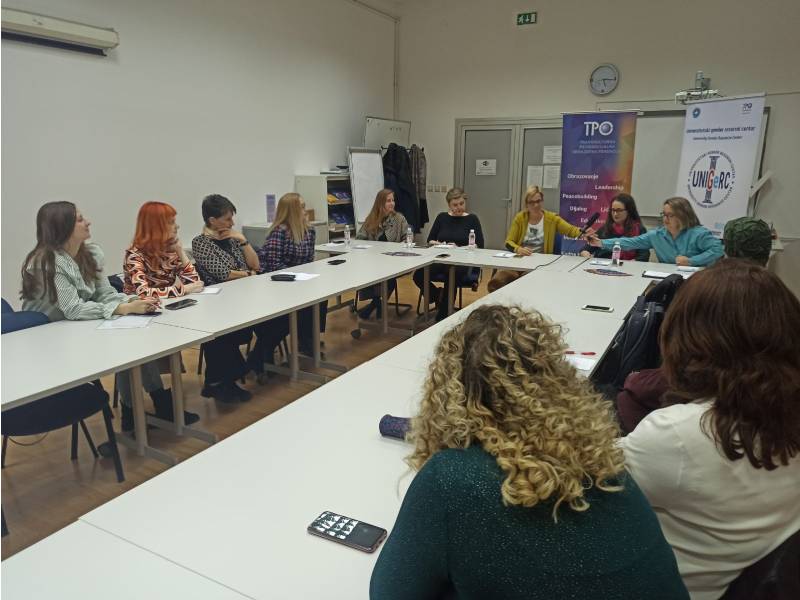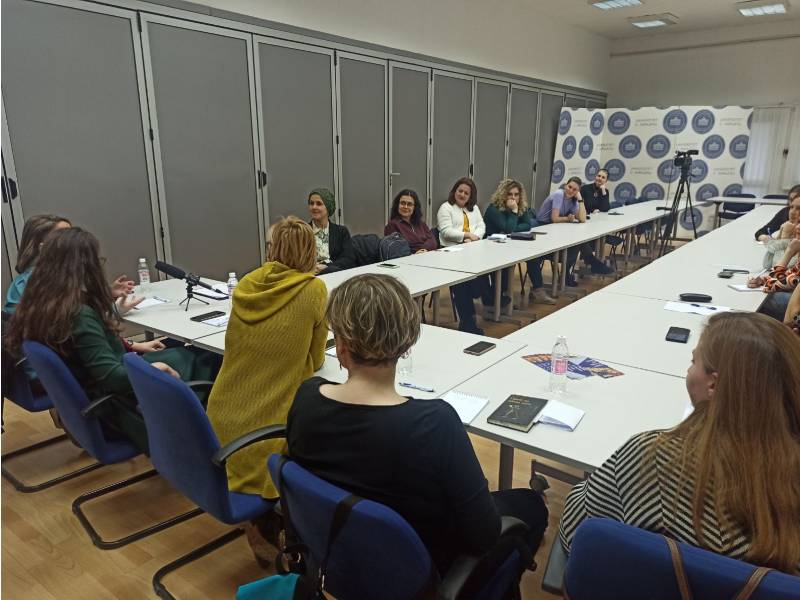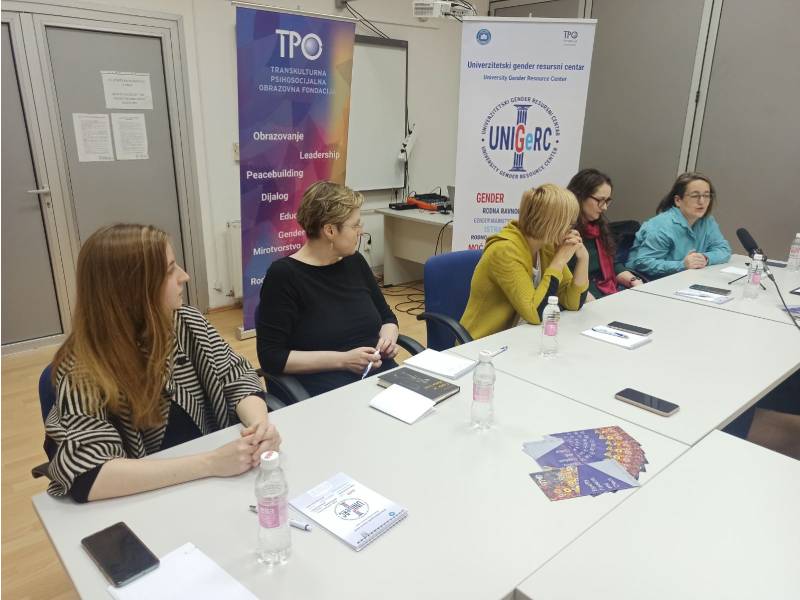On the occasion of the celebration of International Women’s Day, another in the series of activities of the TPO Foundation was the holding of a panel discussion “With BiH women writers about BiH women writers today”. The panel discussion was held on March 9, 2023. in the premises of the Center for Interdisciplinary Studies “prof. dr. Zdravko Grebo” of the University of Sarajevo. An interesting and inspiring conversation was led by contemporary writers Adisa Bašić, Melida Travančić, Lejla Kalamujić, and Nikolina Todorović, and the discussion was moderated by the writer Lamija Begagić. The activity was carried out as part of the UNIGEM (University and gender mainstreaming) project implemented by the TPO Foundation with the support of the United Kingdom Government.
The moderator of the panel discussion, writer Lamija Begagić, opened the conversation on the topic of resting and International Women’s Day, which opened the topic of unpaid domestic work and the social perception of resting as a certain privilege. The panelists pointed out the ubiquitous non-validation of artistic and cultural work, which is a very common phenomenon in literary circles, which most often occurs in the form of unpaid guest appearances, where the mere promotion of their work should be seen as a luxury. Women writers very often use opportunities such as literary residencies to actually be fully dedicated to their work without the burden of other social roles imposed on women. However, as they point out, this is only available to a small number of women writers because it is impossible to achieve a balance between private life and the isolated conditions of residences.


The second part of the panel discussion was devoted to activist work in literature and what are all the forms in which it can be practiced. Writer Lejla Kalamujić referred to the problem of untrue information that is presented to students during university education, and that female writers from history are most often discovered through informal activism. Kalamujić also presented the work of platforms such as the Women’s Reading Room and the Queer Archive. Continuing, professor Adisa Bašić Ph.D. pointed out that working with the student population can also be a form of activism if topics and university syllabuses are approached with a critical mind.
The panel discussion ended with a review of the historical place of women in literature and their position today. Historically, the female voice appears in lyric poetry, where for centuries it managed to philosophically present simple life situations and open up space for a new discourse, and the contemporary female voice in literature becomes more ubiquitous and significant because it brings new perceptions of life experiences.





















